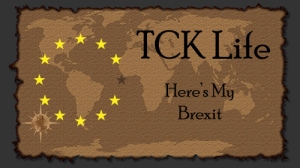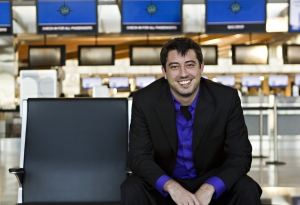 You’re going to be reading a lot of articles about the British vote to exit the EU today, or as it is has been called to sound more flashy and less terrifying over the past months, the Brexit. You’re going to read a lot about how the economy is in turmoil, about how Britain has effectively thrown the world into a spiral, or foresight on what is going to happen with other EU member countries now that Britain has chosen to leave. They’re all right, and they’re all valid articles.
You’re going to be reading a lot of articles about the British vote to exit the EU today, or as it is has been called to sound more flashy and less terrifying over the past months, the Brexit. You’re going to read a lot about how the economy is in turmoil, about how Britain has effectively thrown the world into a spiral, or foresight on what is going to happen with other EU member countries now that Britain has chosen to leave. They’re all right, and they’re all valid articles.
This isn’t one of those articles, though.
If this isn’t your first time here, then you know that I’m a Third Culture Kid (TCK). You know that this collection is about the world, about viewing it through the eyes of a TCK, about the beauty of travel and the connectivity of all of us in a rapidly globalizing society. You know that I write here to inspire confidence in fellow TCKs who have not crossed the threshold of their national identity crisis, to show them that in the end, they’ll find peace in knowing they aren’t a citizen of a country, that their lack of patriotism driven by a lack of national identity doesn’t make them weak, but makes them stronger. You know that this collection is, for the most part, full of love where it may fail to achieve inspiration.
This isn’t one of those articles, though.
You see, I’m about to go to bed tonight in my house in America, 4000 miles away from my birth country of England, and when I fall asleep, should I fall asleep, 51.8% of the people in the country I was born in, a country for which I too hold a passport, will be waking up feeling a sense of national pride, while 48.2% will be waking up feeling a sense of national shame. That being said, perhaps the stats of how the vote turned out will not directly reflect the emotions of those reading them when they see the state of the world they created, and I’m sure there will be plenty of articles covering exactly that.
This isn’t one of those articles, though.
This article is about what my birth country did to me today. It’s personal, but then, it’s also so much more than that. It’s international, is touches everyone, even those who will not share my pain or even understand my words, because today, I was robbed of something I have taken for granted for so many years; today my birth country stripped me of my passport to a significant chunk of the world, and it did so out of ignorance of economics, ignorance of international relations, and ignorance of globalization of the people of the world.
Today, England decided to go against everything the first world has been striving to achieve for the entire course of my 29 year life. It decided that walls were better built than torn down, that separation from a global market was better than working alongside it, and it decided that free transfer of persons across its boarders, in or out, was not the way of tomorrow.
You see, I hold a UK passport. And as a TCK, what happened today is devastating. Today marks the day that will begin the breaking of my access to the EU, that free trade of my person into any country of theirs, to live and work and contribute to the economy of culture and capital. Today, the country of my birth, the country I had so much pride in as a man of international identity because of its commitment to an open, expansive, globalized society that tore down walls and showed the world a new way to be better than the boarders we have chosen to imagine and the patriotism we hide behind, decided that the real path to our future lies in isolation.
Today, England built a wall around its society. And in doing so, it didn’t just steal access to the world from me, it stole the very idea of a world without boarders from everyone. And it did so with cheering crowds.
As an man of no national identity, as a man of the world, no as a child of the world, as a Third Culture Kid, I can think of no greater tragedy to the forward motion of internationalism and globalization to date than what Britain just did with roaring crowds and celebrations.
Today, for the first time in my life, I am ashamed to hold a passport to the United Kingdom.
Today, for the first time in my life, the country of my birth betrayed me by betraying the world.
And so here’s my Brexit: Goodbye, England. I can no longer call you “home,” whatever lack of a meaning that has for this wandering TCK, because no home of mine would sit behind a closed border watching globalization fail to thunderous applause.
__________
 Post by: James R. Mitchener
Post by: James R. Mitchener














